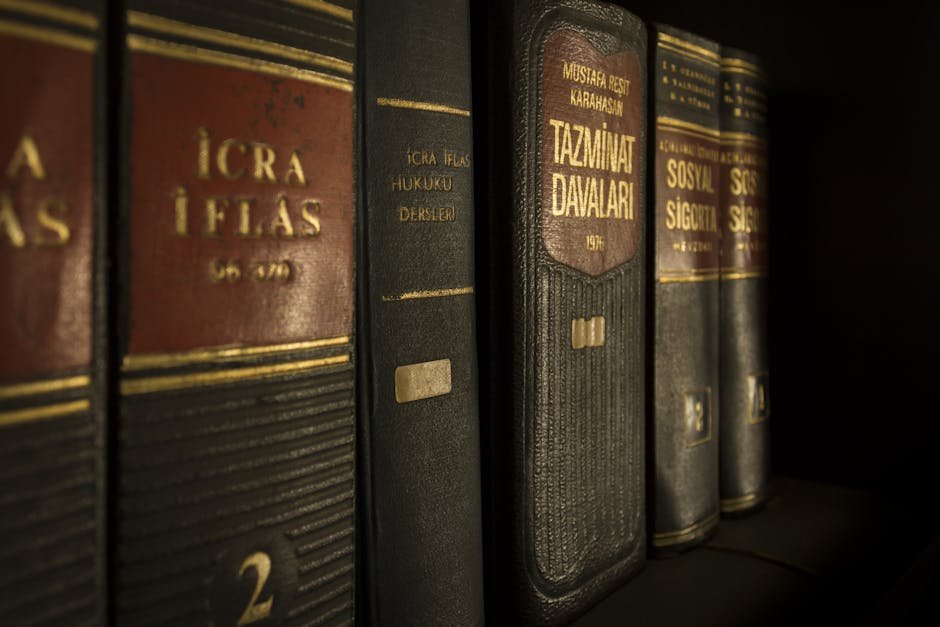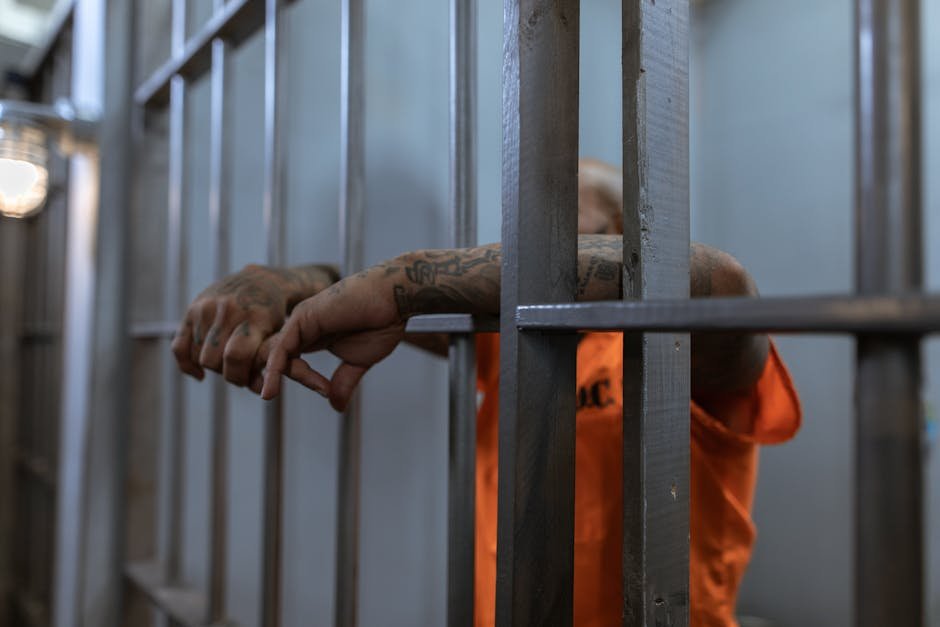In Matthew 9:13, Jesus teaches, “I desire mercy, not sacrifice.” This message is a call to compassion and understanding, urging us to prioritize kindness over strict adherence to rules. In today’s society, this lesson is especially relevant in the context of mass incarceration. The criminal justice system often emphasizes punishment, but mercy can play a crucial role in rehabilitation. Organizations like the Equal Justice Initiative, led by Bryan Stevenson, exemplify this principle by advocating for fair treatment. Stories like that of Walter McMillian show how mercy, coupled with legal advocacy, can correct injustices. Even parole boards can embody mercy, offering second chances. Embracing these teachings can help create a more just society.
Exploring the Biblical Concept of Mercy
The biblical idea of mercy is beautifully illustrated in Matthew 9:13, where Jesus emphasizes, “I desire mercy, not sacrifice.” This teaching recommends compassion over strict rule adherence, especially pertinent in discussions of mass incarceration. Mercy in the criminal justice system can shift the focus from punishment to rehabilitation.
For instance, the Equal Justice Initiative, spearheaded by Bryan Stevenson, champions this by advocating for fair treatment. The case of Walter McMillian, profiled in Stevenson’s “Just Mercy,” highlights how mercy can rectify judicial errors. Similarly, parole boards have the potential to grant second chances, embodying mercy in decision-making.
In my view, the principles of mercy align with initiatives like the Prison Policy Initiative, which push for sentencing reforms. More details are available in other sections of our magazine.
The Message of Matthew 9:13 in Detail
Analyzing the essence of Matthew 9:13, the verse “I desire mercy, not sacrifice” echoes the profound necessity for compassion. It’s a call for empathy, particularly relevant to contemporary issues like mass incarceration. The criminal justice system often overlooks the human element, focusing instead on punitive measures.
Incorporating mercy could radically change this approach. For instance, parole boards can embody compassion by granting parole to rehabilitated individuals. This not just reduces prison populations but also facilitates societal reintegration.
The Equal Justice Initiative, led by Bryan Stevenson, exemplifies mercy in action. Their advocacy for fair treatment in the justice system aligns with the principles of Matthew 9:13. For more on how mercy can influence legal frameworks, consider exploring the American Law Institute’s guidelines.
Why Mercy Matters in Our Modern Society
The relevance of mercy in our modern society is underscored by its potential to transform the criminal justice system. Mercy encourages rehabilitation and reintegration, shifting focus from punishment to healing. For instance, parole boards can play a pivotal role by applying mercy in their decisions, helping reduce mass incarceration.
Moreover, organizations like the Equal Justice Initiative, founded by Bryan Stevenson, embody mercy by advocating for wrongly convicted individuals. This approach aligns with the principles found in Matthew 9:13, emphasizing compassion over sacrifice.
The Prison Policy Initiative also champions reforms rooted in mercy, like reducing excessive sentences. Their recommendations can be found in their comprehensive report. By integrating mercy into legal frameworks, we can create a more just and humane society.
The Connection Between Mercy and Jesus’ Teachings
The link between Jesus’ teachings and mercy is evident in his actions and parables. He stressed forgiveness, healing, and compassion, urging his followers to adopt these virtues. Jesus’ approach to mercy can be seen when he forgave the adulterous woman and healed the sick.
These actions offer a blueprint for addressing modern issues like mass incarceration. For instance, the Equal Justice Initiative, founded by Bryan Stevenson, echoes this call for mercy. They champion the wrongly convicted and push for systemic reform.
Similarly, parole boards have the power to show mercy. By granting parole to rehabilitated inmates, they can help reduce prison populations.
Incorporating mercy in the criminal justice system promotes a more compassionate society, rooted in the teachings of Jesus.

How Jesus Showed Mercy: Biblical Examples
Exploring how Jesus exemplified mercy, we see a variety of notable actions. Jesus forgave the adulterous woman, telling her, “Go and sin no more.” He showed compassion by healing the sick, such as the blind beggar in Jericho. His mercy extended to the demon-possessed man in Gadara, freeing him from suffering. Jesus’ parables, like the Good Samaritan, illustrated the importance of showing mercy to others.
In the context of mass incarceration, this principle is crucial. Organizations like the Equal Justice Initiative embody Jesus’ teachings by advocating for the wrongly convicted. Parole boards, for example, have the power to grant parole to rehabilitated individuals, aligning with the essence of mercy. For deeper insights, you can refer to the Prisoners’ Strike Primer.
Mass Incarceration: A Critical Issue in America
Addressing mass incarceration critically, we see the criminal justice system often prioritizes punishment. This approach has led to over 2.3 million individuals imprisoned. Mercy, however, can shift this narrative.
Take Bryan Stevenson, founder of the Equal Justice Initiative. He champions mercy by advocating for those wrongly convicted. His efforts highlight the profound impact of compassion.
Parole boards also offer a platform for mercy. By granting parole to rehabilitated individuals, they help reduce prison populations and support reintegration.
‘Good time’ policies further encourage good behavior, aligning with the principles of mercy. Walter McMillian’s case, showcased in Stevenson’s “Just Mercy,” illustrates how legal advocacy and compassion can rectify injustices.
The American Law Institute supports mercy in sentencing, urging judges to consider mitigating factors. Embracing these practices can foster a just society.

The Statistics: A Look at Mass Incarceration Rates
Examining the statistics of mass incarceration reveals alarming numbers. The U.S. holds over 2.3 million inmates, disproportionately affecting marginalized groups. This highlights systemic racial and economic inequalities that are hard to ignore. The criminal justice system’s focus on punishment over rehabilitation significantly contributes to these high incarceration rates.
Mercy, as illustrated by Bryan Stevenson, offers a different approach. His advocacy for Walter McMillian is a testament to how mercy can reform the system. The Prison Policy Initiative also champions reforms to address these issues. Their proposals emphasize reducing excessive sentences and improving parole systems, aligning with the principle of mercy.
Parole boards, for instance, have a significant role here. They can grant early release to rehabilitated individuals. This not just reduces prison populations but also supports their reintegration, as discussed in this detailed article.
The Role of the Criminal Justice System
The justice system’s role in perpetuating mass incarceration can’t be ignored. Policies often favor punishment over rehabilitation. Yet, there’s a glimmer of hope through mercy. Take the parole board. They hold the power to grant early release to those who show genuine reform. This not just reduces prison numbers but aids reintegration.
Consider the impact of Bryan Stevenson. His advocacy for Walter McMillian shows how compassion can correct injustices. The Prison Policy Initiative also pushes for mercy-driven reforms. These reforms include reducing excessive sentences and enhancing parole systems.
Finally, the American Law Institute‘s guidelines support mercy in sentencing. They urge judges to weigh mitigating factors and potential rehabilitation. This approach aligns with a more humane and just system.
The Intersection of Mercy and Mass Incarceration
Navigating the intersection of mercy and the justice system reveals complex layers. Bryan Stevenson’s advocacy for Walter McMillian is a prime example of how mercy can correct profound injustices. Parole boards play a critical role here, offering a second chance to those who have reformed. The American Law Institute’s guidelines further support this by urging judges to consider mitigating factors, thus promoting a more humane approach.
Policies like ‘Good Time,’ which reward inmates for good behavior, also align with principles of mercy. These policies reduce sentences and encourage rehabilitation. The Prison Policy Initiative advocates for these reforms, pushing for shorter sentences and improved parole systems. According to justice statistics, such measures could significantly impact mass incarceration, transforming lives through compassion and understanding.
Mercy in Action: The Story of Bryan Stevenson and Equal Justice Initiative
Bryan Stevenson’s journey with the Equal Justice Initiative embodies the essence of mercy. His tireless advocacy for those unjustly condemned showcases mercy in its purest form. One memorable case is that of Walter McMillian, who was wrongfully sentenced to death. Stevenson’s efforts led to McMillian’s exoneration, highlighting the impact of mercy in the judicial system.
Stevenson’s push for reforms, such as better parole board decisions and ‘good time’ policies, aligns with the values of mercy. These changes not just reduce sentences but also promote rehabilitation. Such efforts, supported by justice statistics, offer a humane approach to addressing mass incarceration.
By advocating for the forgotten, Stevenson and his team turn mercy into action, creating ripples of hope and justice.
Parole Boards: A Platform for Mercy
Parole boards offer an avenue for mercy in a system often dominated by punishment. They can grant parole to those demonstrating genuine rehabilitation, thus reducing the prison population. This act of mercy aligns with the principles of fairness and reintegration.
A significant example is Bryan Stevenson, who advocates for humane reforms and better parole decisions. His efforts underscore the importance of compassionate justice in tackling mass incarceration.
Implementing ‘Good Time’ policies is another approach. These policies reward inmates for good behavior, shortening sentences and promoting rehabilitation. Such measures embody the spirit of mercy and support societal reintegration.
Incorporating these compassionate strategies, as recommended by the American Law Institute, can reshape the legal framework. By focusing on mercy, parole boards can help create a more just and empathetic society.
Parole Decisions: A Chance for Mercy
Granting parole offers an avenue for showing mercy. It’s a pivotal moment where compassion can influence outcomes. Parole boards evaluate rehabilitation and behavior, considering if someone deserves a second chance. This approach can significantly impact mass incarceration.
Implementing policies like ‘good time’ can also reflect mercy. These policies reward inmates for positive behavior, leading to reduced sentences. Such measures not just support rehabilitation but also lessen prison overcrowding.
The case of Walter McMillian is a poignant example. His unjust conviction and eventual release highlight the transformative power of mercy. When parole boards and policies align with compassionate principles, they foster a more just and empathetic system.
Incorporating mercy in parole decisions can reshape lives, reduce recidivism, and ultimately create a fairer society. Let’s ensure mercy remains central in these crucial decisions.
Reconsidering ‘Good Time’: An Act of Mercy
Considering the concept of ‘Good Time’ through a lens of mercy, it’s clear this approach has profound implications. Policies that reduce sentences for good behavior do more than cut incarceration rates—they foster rehabilitation. This aligns with the principles of compassion and forgiveness central to many faiths.
For instance, parole boards have the unique power to apply these principles. By granting parole to rehabilitated individuals, they show mercy and support societal reintegration.
Walter McMillian’s case is a poignant example of mercy in action, shedding light on the need for compassionate justice. His wrongful conviction and release underscore the impact mercy can have on lives.
Revisiting ‘Good Time’ policies as an act of mercy could transform our justice system. It’s a step toward a more humane and just society, reducing mass incarceration with a compassionate touch.

How ‘Good Time’ Reduces Prison Sentences
Considering how ‘Good Time’ policies can influence prison sentences, it’s fascinating to see their potential. These policies reward inmates for positive behavior, allowing them to reduce their time behind bars. This practice encourages inmates to engage in rehabilitation programs and maintain good conduct.
Offering ‘Good Time’ credits aligns with the principles of mercy found in Matthew 9:13. By focusing on rehabilitation rather than retribution, we foster a more humane justice system.
Interestingly, parole boards also play a crucial role here. They can grant parole based on an inmate’s behavior, providing another layer of mercy and support for reintegration.
For more information on legal reforms and their impact, you might find the Robina Institute’s parole profiles insightful. Their research highlights the importance of mercy in reducing prison sentences and promoting justice.
Walter McMillian: A Case Study in Mercy
The case of Walter McMillian stands as a testament to the power of mercy in our justice system. His wrongful conviction and subsequent release thanks to compassionate legal advocacy underscore the importance of mercy. McMillian’s case, highlighted in “Just Mercy,” reveals the flaws in our justice system and the need for mercy-driven reforms.
The parole board plays a critical role here, offering a platform for mercy through parole decisions. Additionally, ‘Good Time’ credits for good behavior in prison offer another layer of mercy, reducing sentences and promoting rehabilitation. Justice statistics show that such measures can significantly impact incarceration rates, especially for marginalized communities.
Mercy can transform lives and systems, as vividly illustrated in McMillian’s case. This approach aligns with the teachings of Matthew 9:13, advocating for a justice system grounded in compassion and forgiveness.
How Mercy Played a Role in Walter McMillian’s Case
In exploring how mercy impacted Walter McMillian’s case, one cannot overlook the pivotal role it played. Legal advocates, driven by compassion, fought tirelessly to rectify the wrongful conviction. McMillian’s release not just highlighted judicial flaws but also underscored the transformative power of mercy.
Justice statistics reveal that incorporating mercy into the judicial process can significantly alter outcomes, particularly for marginalized individuals. For instance, the parole board’s decision to grant McMillian parole was a direct application of this principle, demonstrating how mercy can pave the way for justice reform.
For more in-depth information on similar legislative reforms, Delaware’s House Bill 244 details further efforts to instill mercy within the justice system. Walter McMillian’s case serves as a powerful example of how mercy can reshape lives and policies alike.
The Prison Policy Initiative: Advocating for Mercy
Advocacy for mercy in the prison system is central to the Prison Policy Initiative’s mission. They push for reforms that prioritize compassion, such as reducing lengthy sentences and improving parole processes. By placing a high value on rehabilitation, they aim to transform lives. Consider the plight of elderly and sick prisoners highlighted by The Marshall Project, which underscores the necessity of mercy.
Proposed reforms also include revisiting ‘Good Time’ policies, rewarding inmates for positive behavior, aligning with mercy’s principles. Implementing these changes through the parole board can significantly reduce the prison population and aid reintegration. This approach not just benefits individuals but also fosters a more just society. Mercy, as championed by the Prison Policy Initiative, offers a path to profound criminal justice reform.

Reforms Proposed by the Prison Policy Initiative
The reforms introduced by the Prison Policy Initiative focus on integrating mercy into the justice system. They advocate for reducing excessive sentences, especially for non-violent offenses. Streamlining parole board procedures ensures fair evaluations and timely releases. Emphasizing good time credits incentivizes inmates to engage in rehabilitative activities, promoting positive behavior.
These measures not just lower incarceration rates but also support societal reintegration. Furthermore, addressing systemic inequalities by revisiting sentencing guidelines can pave the way for a more just and humane system. Mercy in action isn’t just about leniency; it’s about creating opportunities for change and redemption.
In this light, the Prison Policy Initiative’s approach aligns with broader goals of fairness and justice, pushing for a system that values human dignity and potential for rehabilitation.
The American Law Institute and Mercy in Sentencing
Understanding mercy within sentencing guidelines shows a shift towards humane justice. The Model Penal Code from the American Law Institute incorporates this by advising judges to consider mitigating factors. This approach encourages the rehabilitation of offenders rather than just punishment.
Historical cases, like those highlighted in Bryan Stevenson’s book, underscore the impact of mercy in rectifying judicial errors. Moreover, policies that involve good behavior credits, known as “good time,” further reflect this principle. They reward inmates for positive actions, reducing sentences and fostering rehabilitation.
For a deeper understanding of mercy in real-world scenarios, the review of “Just Mercy” by Variety provides a compelling look at its application in the justice system. This intersection of law and compassion redefines how we view penal reform, urging a more empathetic approach.
The Impact of Mercy on Legal Guidelines and Policies
Examining the influence of mercy on legal guidelines and policies reveals significant changes in justice systems. Mercy encourages judges to look beyond punishment, considering rehabilitation. This shift is evident in parole board decisions, where mercy can lead to earlier releases for rehabilitated individuals. Such decisions are pivotal in reducing prison populations.
Moreover, policies like “good time” offer a chance for inmates to shorten their sentences through good behavior. This not just aligns with mercy but also fosters rehabilitation. By integrating mercy, the justice system becomes more compassionate, aiming for a fairer society.
Justice statistics show a correlation between merciful policies and lower recidivism rates. When leniency is applied, it benefits not just the individual but the community as a whole. This reformative approach underpins a more humane and effective justice system, transforming lives and communities alike.

A Call to Action: Promoting Mercy in Our Communities
Promoting mercy within our communities is more than a noble goal; it’s a necessity. Community members can support reforms that emphasize rehabilitation and forgiveness, rather than strict punishment. Consider the role of the parole board, which has the power to show mercy by granting parole to those who have demonstrated genuine change.
Additionally, policies like “good time” reward good behavior, aligning with the principles of mercy. These actions reduce prison populations and assist in the reintegration of formerly incarcerated individuals.
Justice statistics highlight the positive impact of merciful policies. Lower recidivism rates are often seen where leniency is applied. This not just benefits individuals but also strengthens community bonds.
By embracing mercy, we foster a culture of compassion, making our communities safer and more just places to live.




0 Comments